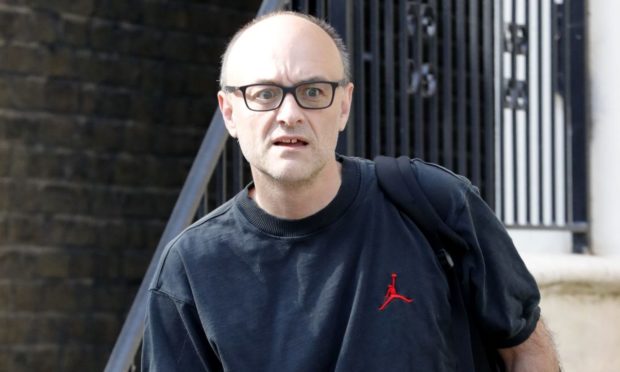
Dominic Cummings’ trip to Durham at the height of lockdown while suffering from Covid-19 drastically undermined public trust in the Government’s handling of the pandemic, according to new research.
The analysis, conducted by University College London (UCL), found the actions of the Prime Minister’s chief adviser reduced people’s willingness to follow social distancing rules.
Published in the Lancet, the research analysed 220,000 survey results from 40,000 participants in UCL’s Covid-19 social study between April 24 and June 11.
Respondents were asked how much confidence they had in the Government’s handling of the pandemic on a scale of one (none) to seven (a lot).
Among participants living in England, confidence dropped approximately 0.4 points on this scale between May 21 and 25.
News of Mr Cummings’ 420km drive with his wife and child broke on May 22.
The researchers assessed the impact of his actions by comparing the levels of confidence those living in Scotland and Wales said they had in their devolved governments.
There was no comparable drop in confidence in the leaders of Scotland and Wales over this time period.
The researchers found those living in England had not regained their confidence in the UK Government, with the gap between those in England and the devolved nations continuing to widen.
It revealed that adherence to lockdown, which was already starting to decline, dropped more rapidly in the following weeks, particularly in England.
Lead author Dr Daisy Fancourt, of UCL Institute of Epidemiology and Health Care said: “Public trust in the Government’s ability to manage the pandemic is crucial as it underpins public attitudes and behaviours at a precarious time for public health.”
She added: “Trust in government decisions and actions relating to the management of Covid-19 is a major challenge globally and these data illustrate the negative and lasting consequences that political decisions can have for public trust and the risks to behaviours.”
The social study was launched in the week before the UK went into lockdown.
It tracks how adults are feeling about the lockdown, government advice and overall wellbeing and mental health.
Shadow health secretary Jonathan Ashworth said: “Boris Johnson’s failure to confront Dominic Cummings over his lockdown breach was a monumental misjudgment.
“The Government rightly asked the British people to make huge sacrifices to drive down infection rates.
“So, to have allowed his most senior adviser to blatantly break the rules undermined vital life-saving public health messaging at the peak of this deadly pandemic.”

Enjoy the convenience of having The Sunday Post delivered as a digital ePaper straight to your smartphone, tablet or computer.
Subscribe for only £5.49 a month and enjoy all the benefits of the printed paper as a digital replica.
Subscribe